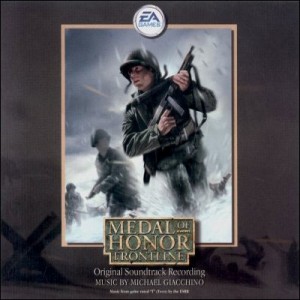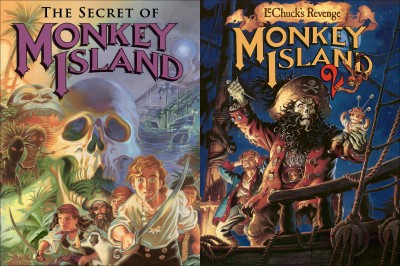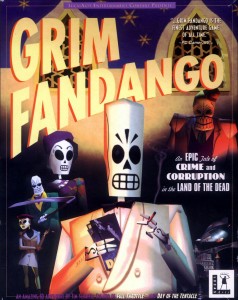It’s been a few days since Roger Ebert, much to the chagrin of gamers, came out and stated that video games can never be art. Rather than leaping onto the forums to express my rage, I’ve decided to sit back and see how people react before composing this response to Mr. Ebert.
A flippant approach to the argument would be that the story, dialogue, and music are all part of the video game. The fact that each aspect is art when considered individually means that if combined, the final product must be art as well. I believe this to be so.
Countless video game soundtracks are considered art and are performed by orchestras around the world. However, it seems that by simply being part of a video game, the artistic value of the composers, writers, and concept artists (among others) is lessened. Frankly, it’s a double standard. Michael Giacchino won an Oscar this year for Up and, unbeknownst to many, he provided the amazing soundtrack to several of the Medal of Honor games. Quibble all you want about the quality of one score versus another, but does his score suddenly descend to mere ‘entertainment’ the moment it’s implemented into a video game? No, of course not.
Let us consider the artwork of Yoshitaka Amano. My somewhat biased love aside, he’s certainly an artist. He’s published over 30 art books, worked in animation and illustration, and is known to gamers as the character designer for Final Fantasy I thru VI and the logo designer for most of the main series titles. His artwork, displayed in galleries and separated from the medium of video games, is seen exactly for what it is; art. But many non-gamers seem to believe that its artistic value is lessened by its incorporation into video games.
The problem with Mr. Ebert is that he has not sampled some of the finer vintages in video games. Titles like Braid and Flower are buzz titles hastily whipped out by defenders of video games, but we need to go deeper to get to Ebert.
A game that immediately jumps to my minds is Baldur’s Gate, which is art largely because of its storyline, writing, music, and art. Gameplay is also a factor but seeing as it’s commonplace for engines to be tweaked and reused (Baldur’s Gate/Planescape: Torment/Icewind Dale), the burden of artistic value is almost entirely on the shoulders of the aforementioned elements.
Now storyline, writing, music, and art can all be relayed through film. Yes, that’s true. But the sheer volume of content prevents this from happening, and this is where interactivity comes in. Each text tree grows exponentially with each option given to the player and the only reason people have the patience to read thousands of pages of text is because we’re in control of the story.
Games, unlike film, force the player into an active role in the story. Whereas one can enjoy film as a passive viewer, to truly enjoy a video game, total immersion is required. Just as novelizations of film are inferior to their big screen counterparts, so would a film of a video game. In fact, I believe that much has been proven seeing as the only watchable video game movies are a few Uwe Boll movies and possibly Silent Hill. I’d also like to point out that the novelization of Baldur’s Gate is absolutely horrible.
Ebert said that “No one in or out of the field has ever been able to cite a game worthy of comparison with the great poets, filmmakers, novelists and poets.” Being more enamored with film than video games, I feel inclined to agree with him. I am unable to name any video game that’s as good as The 400 Blows or The Third Man. However, Ebert’s statement that video games can never be art is what grates on the nerves.
But that’s because the interactivity in video games is just as great a hindrance as it is a benefit. While interactivity allows for multiple storylines and breaks up the exposition and narrative with gameplay, a film is a tightly knit and finely tuned narrative with a beginning, middle, and end. Pacing is impossible for video games because most video games are longer than 5 hours and many cross into the 50+ hour territory.
In Ebert’s journal, he made reference to a conversation with Kellee Santiago, founder of thatgamecompany, the developers behind flOw and Flower. She believed that the most accurate definition of art was from Wikipedia: “Art is the process of deliberately arranging elements in a way that appeals to the senses or emotions.” Ebert acknowledged this definition but naturally art cannot be perfectly defined. But it’s as good a definition as any.
The emotion of fear is powerful and the genre of horror is one of the most popular and lucrative in the film industry. Consider Condemned: Criminal Origins. If art is deliberately arranged to appeal to the senses and emotions, then Condemned was deliberately arranged to scare people shitless and drain players emotionally, psychologically, and physically. I have never been so scared by a film as I was by Condemned. Add F.E.A.R., Silent Hill 2, Siren, and a slew of other survival horror games to that list. Are they not art?
Take a look at Roger Ebert’s film reviews. 4 stars for Indiana Jones & The Temple of Doom. What about Uncharted? 4 stars for Star Wars. What about Mass Effect? Or for that matter, what about Indiana Jones & The Fate of Atlantis and Star Wars: Knights of the Old Republic?
I could go on for much longer, citing source after source to emphasize my point, but I’ll end it here. If the whole is greater than the sum of the parts, then video games can most definitely rise to the level of ‘art.’ I believe that Mr. Ebert is correct in saying that there aren’t any video games that are comparable to some of the greatest films out there, but the medium of video games and the belief that they’re “for kids” imposes limitations. As usual, Daniel Floyd puts it succinctly in one of his videos.
The only games that approach ‘art’ in my opinion are Shadow of the Colossus and Ico. I believe that games have yet to reach their full potential, but I must disagree with Mr. Ebert when he states that it will “never” happen.





For me, I find that many games have become art. I consder Samwise and Amano to both be incredible artists whose works are a part of greater art.
For me, I have yet to see a MOVIE that approaches the level of art of the better video games.
That is the beauty of opinion.
art is bullshit, and arguing about what is art is an exercise in futility.
Art is subjective, and in saying that one thing is “art” then everything related to that thing should also be considered “art.” That way we aren’t biased, but it is easy to become an “art critic,” just go to an auction and say what is good or not (yeah, that easy). Or be in an industry for decades, and your word seems like the word of God.
Mr. Ebert, stop being biased, I know you don’t like video games (one reason being that it takes away from people watching movies), but Games can be art.
The aforementioned titles in the Article are enough, plus the ones shown in their box art covers (see art right there). Paintings are art, and art is subjective, but the “paintings” that are considered “art” that annoy me are the ones that someone just threw their paintbrush at the canvas (that is not art, that is lazy).
I’ll step into the RPG realm here. Take The Witcher for example. The video game is based off the Novels and short stories, and takes place right after the stories end. The Books also inspired a less than stellar tv series, and a decent movie. However, the game is fantastic, because of the carefully crafted nature of the game. The music is beautiful, the character designs have their limitations, but when it comes down to story, few games have the sociopolitical story that The Witcher has. The story is enough to make you attached to a few characters, and have the choice to decide who you want with you.
The problem with Mr. Eberts is that he has been around for a long time reviewing movies, and has developed a bias. I watch movies regularly, but I fail to see how some of these movies that he and other reviews consider to be “art.” All he can think of games are GTA, Mario, and Halo (probably), but I can think of a bunch of movies that end up in the exact same categories of action as the games I mentioned. So that begs the question, are movies not considered “art” if there are crappy movies that have no sensible story, plot, character development, music, or visual aesthetics? My answer: no, movies can be considered “art” as long as they are gripping, and not some trifling mess, the same goes for Games.
Someone needs to sit Mr. Ebert down with some good old PC games (DLed from GoG) to show him that games can be art. If we are able to defend games, then that means they are legitimate, and should not be considered trifling messes.
Eliot, to get the full experience out of a movie, you have to be involved with it, you can’t just watch passively. If you just watch passively, you will be lost in what is going on.
Man that is a wall of text. I had a better argument a few days ago when I read about his statements, but alas, I didn’t write it down.
There is definitely art in video games. And the great thing about our medium is that it can give the player so many more emotions than other mediums, since it is a combination of film and music, but interactive.
We should just ignore Roger, he gave Blue Velvet a single star just because he considered that Isabella Rosellini got humilliated because of her role and he gave 3 and a half stars to The Last House on The Left while he gave zero stars to I spit on your grave (Both films are exploitative rape/revenge films), just ignore him.
He’s an old coot.
1 STAR TO BLUE VELVET?!
He gave 2 stars to Attack of the Clones.
3.5 stars to Phantom Menace
ZOMG.
He also gave Indiana Jones 4 three and a half stars, and again, he gave 3 1/2 stars to The Last House on The Grave while he gave 0 stars to I Spit on Your Grave just because it was sick garbage in his opinion, which is kind of strange considering The Last House on The Left is also really violent and crude (And it share almost the exact same plot).
Nice article but if people want to counter Ebert’s arguments, then they need to go up against his biggest problem with games as art: interactivity. You made mention of it and how it’s great, but that’s where people need to attack his argument to prove him wrong. That art can be interactive and still be considered art. People are looking at the pieces of the game with graphics, sounds and story, but that’s not was he’s pointing out. He’s pointing out that we have a choice in a game, but in what he calls art, you don’t. In the end, time is the ultimate decider.
The real factor is that how is one person able to determine what is art and why do we care if what we call art, he doesn’t?
To me, a lot of the movies he considers to be art… are the furthest things from art.
Art is a matter of perspective, and why does it matter if one person’s perspective differs from another?
At the end of the day, art is in the eye of the beholder.
To me, the Mackinac Bridge is a piece of art.
To others, Stonehenge might be art.
As reviewers we (staff of elder-geek.com) judge games as entertainment, not art. This is because to call something bad art, or indeed; not art. Is bullshit. Like many mentioned above, art is subjective. Compleately subjective, the reason why random paint splashes on a canvas is considered art is because it means different things to different people. It’s the Rorschach effect. What it means to you depends on your life experiences and current mood. So to say that something born from a creative process is unversally bad art or not art is compleate bullshit. Likewise anyone who calls them selves art critics are compleate bullshit.
If we ever say in one of our reviews that a game has bad graphics or bad sound effects, you’ll notice that it’s allways because the textures are low res or the sound effects are out of place or poorly utilized. It’s never that the actual piece of graphic or the actuall sound bit is bad, but only that it’s bad in context with the game.
As long as it’s born from a consious creative process, art is whatever the fuck you want it to be. If Ebert so desperately wants to put movies, music, books and paintings in their own chatagory then he’s going to have to make up a new one. He can’t have art, it belongs to us all. If art is subjective he is full of shit, if art is objective every entertainment reviewer has to quit, because clearly their opinion doesn’t matter.
So pick your poison Ebert, would you rather be wrong on this one issue, or loose your job.